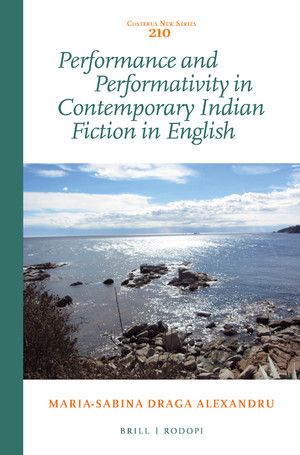by Maria-Sabina Draga Alexandru
This book starts with a consideration of a 1997 issue of the New Yorker that celebrated fifty years of Indian independence, and goes on to explore the development of a pattern of performance and performativity in contemporary Indian fiction in English (Salman Rushdie, Arundhati Roy and Vikram Chandra). Such fiction, which constructs identity through performative acts, is built around a nomadic understanding of the self and implies an evolution of narrative language towards performativity whereby the text itself becomes nomadic. A comparison with theatrical performance (Peter Brook’s Mahabharata and Girish Karnad’s ‘theatre of roots’) serves to support the argument that in both theatre and fiction the concepts of performance and performativity transform classical Indian mythic poetics. In the mythic symbiosis of performance and storytelling in Indian tradition within a cyclical pattern of estrangement from and return to the motherland and/or its traditions, myth becomes a liberating space of consciousness, where rigid categories and boundaries are transcended.

